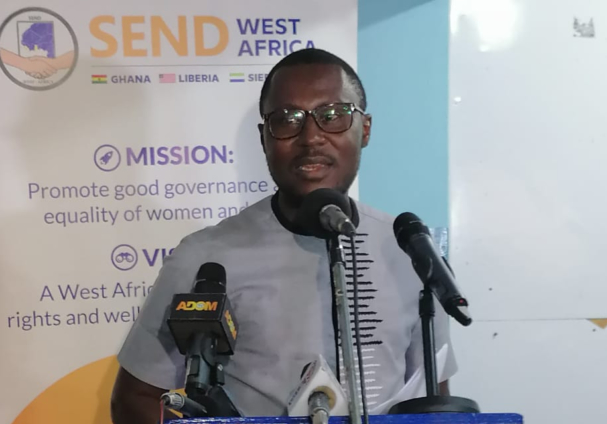The beneficiaries of some social intervention programs have often times complained of delays in receiving their grants or never receiving them at all. This they say worsens their already awful living conditions.
One such person is 75-year-old Alice Adzokar who resides in Lower Manya Krobo in the Eastern Region.
Unable to walk or work, she relies on the ¢64 allocation she gets from the Livelihood Empowerment Against Poverty (LEAP), every two months.
She is one of the 1.5 people enrolled on the program which allocates between ¢64 and ¢106 cedis to aid their survival.
This time, Alices’ wait has been more "I am sick and cannot walk and I am unable to work too so I depend on government for survival.
"When my allocation does not come due to delays I ask some of my relatives to support me. The money delays for so long I can barely keep up with the schedule."
Alice Adzokar says she does not know who to ask whenever her money delays "I get so worried when I have no money to take care of myself, especially my health needs.
"This is so sad. I'm pleading with government, we are his people so they should please assist us and ensure the monies come on time too."
Alice’s situation and persons in similar situations as hers on other social intervention programs such as capitation grant, school feeding and National Health Insurance Scheme (NHIS) among others, makes NGO, Send Ghana equally unhappy.
They believe if government prioritises making the livelihood of the poor persons better, the release of monies will not be delayed.
This stance was well elaborated at a news conference in Accra by the Deputy Country Director, Dr Emmanuel Ayifah.
"Indeed the rampant delays in beneficiary grant payment is making the public lose confidence In the effectiveness of the LEAP and other social intervention programs aimed at defeating poverty and address inequality."
Dr Ayifah, who describes these pro-poor interventions as the baseline in "preserving the social protection rights of those enrolled" urged government "to be committed to fulfilling its part not partially but fully."
Acknowledging the financial challenges government may be facing in meeting all its social intervention needs, Dr Ayifah recommends a private partnership which he’s certain will ensure stainable financing for social protection delivery.
He also wants social intervention programs prioritized in the 2022 budget.
"We know preparation for the 2022 budget is underway so we are speaking to the Ministry of Gender, Children and Social Protection, we are making our concerns known and availing our inputs.
"We are also asking the Ministry of Finance to factor in the allocations for these social interventions and ensure they are disbursed to the people, and on time."
Latest Stories
-
Nigerian pastor Chris Oyakhilome pushing malaria vaccine conspiracy theories
4 mins -
Zonda Tec Ghana Ltd officially launches “Shantui Truck and Equipment”
10 mins -
Mining under new gas pipelines dangerous – Genser Board Chair warns galamseyers
15 mins -
African Capacity Building Foundation to establish African School of Regulation in Accra
25 mins -
Gospel musician Padmore Abekah releases Mother’s Day Anthem ‘Sweet Sweet Mother’( Ena Pa)
32 mins -
Ejisu by-election: We will defeat ex-MP going independent – Wontumi
39 mins -
A tale of heartbreak and closure
49 mins -
JamRok Bar peddling nothing but falsehoods, defamatory statements against Mr Drew – Management
1 hour -
Ashanti Regional Minister must apologise or… – ECG workers protest arrest of colleague
1 hour -
We are determined to achieve universal access to electricity by end of 2024 – Finance Minister
1 hour -
High Court adjourns Anti-Gay Bill case ‘against’ Akufo-Addo to April 29
1 hour -
Akesse Brempong to hold ‘Davidic’ concert on April 21
2 hours -
Here’s why Dr. Steve Manteaw supports Otumfuo’s call for ECG, GRIDCo divestiture
2 hours -
Ejisu by-election: Former NPP MP files nomination to contest as independent candidate
3 hours -
Aklerh out with ‘Dancehall Queen’ EP
3 hours

